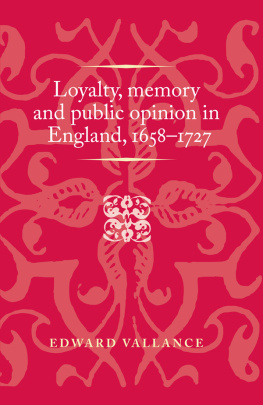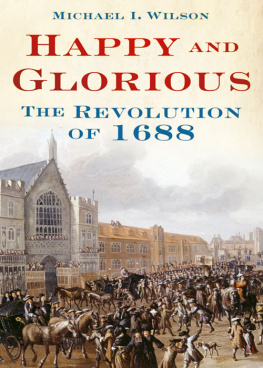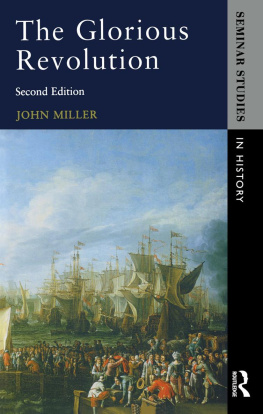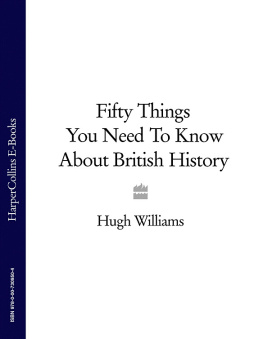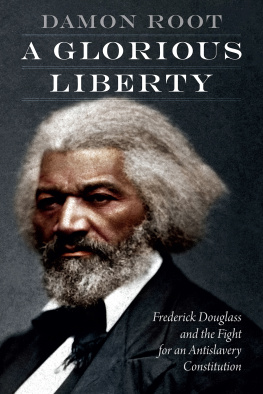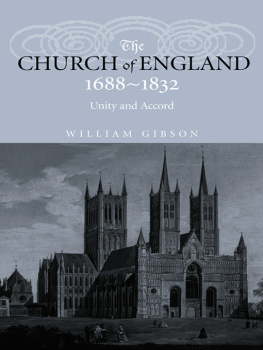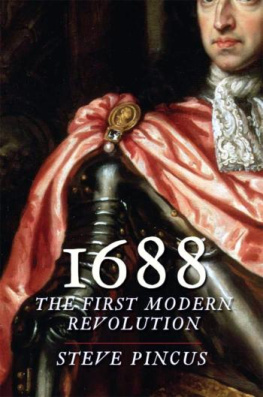Edward Vallance - The Glorious Revolution: 1688: Britains fight for liberty
Here you can read online Edward Vallance - The Glorious Revolution: 1688: Britains fight for liberty full text of the book (entire story) in english for free. Download pdf and epub, get meaning, cover and reviews about this ebook. year: 2013, publisher: Little, Brown Book Group, genre: History. Description of the work, (preface) as well as reviews are available. Best literature library LitArk.com created for fans of good reading and offers a wide selection of genres:
Romance novel
Science fiction
Adventure
Detective
Science
History
Home and family
Prose
Art
Politics
Computer
Non-fiction
Religion
Business
Children
Humor
Choose a favorite category and find really read worthwhile books. Enjoy immersion in the world of imagination, feel the emotions of the characters or learn something new for yourself, make an fascinating discovery.

- Book:The Glorious Revolution: 1688: Britains fight for liberty
- Author:
- Publisher:Little, Brown Book Group
- Genre:
- Year:2013
- Rating:5 / 5
- Favourites:Add to favourites
- Your mark:
- 100
- 1
- 2
- 3
- 4
- 5
The Glorious Revolution: 1688: Britains fight for liberty: summary, description and annotation
We offer to read an annotation, description, summary or preface (depends on what the author of the book "The Glorious Revolution: 1688: Britains fight for liberty" wrote himself). If you haven't found the necessary information about the book — write in the comments, we will try to find it.
Edward Vallance: author's other books
Who wrote The Glorious Revolution: 1688: Britains fight for liberty? Find out the surname, the name of the author of the book and a list of all author's works by series.
The Glorious Revolution: 1688: Britains fight for liberty — read online for free the complete book (whole text) full work
Below is the text of the book, divided by pages. System saving the place of the last page read, allows you to conveniently read the book "The Glorious Revolution: 1688: Britains fight for liberty" online for free, without having to search again every time where you left off. Put a bookmark, and you can go to the page where you finished reading at any time.
Font size:
Interval:
Bookmark:
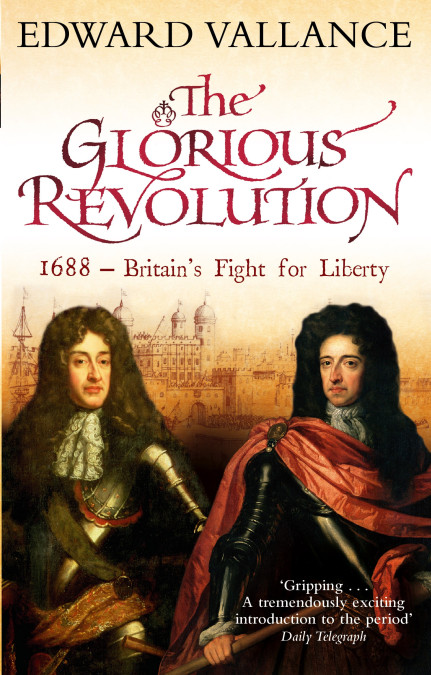
Edward Vallance completed his BA and Ph.D. at Balliol College, Oxford. From 2000 to 2002 he was the De Velling Willis Research Fellow at the University of Sheffield. He is now a lecturer in Early Modern History at the University of Liverpool. His most recent book, A Radical History of Britain, is published by Little, Brown.
Very welcome as an up-to-date and well-informed narrative account of the Glorious Revolution. He tells the dramatic story with a calm authority and easy style Vallance leavens his account by allowing a large range of late-seventeenth century accounts to be heard fascinating balanced without being anodyne, wide-ranging without being superficial assured without being complacent. It deserves the wide audience it is aimed at Times Literary Supplement
Well researched and immensely readable. His judicious use of details makes history come alive A highly accomplished account of a decisive chapter in our national story. Its conclusions that the Glorious Revolution may simply have replaced the possibility of royal tyranny with that of a legislative one is particularly chilling at a time when our hard-won liberties are once again under threat Daily Express
A brisk, taut and lucid account Vallance retells the story of the Popish Plot, with the pace of a thriller, building the sense that something was rotten in the state of England Independent
Does the best of making this complicated, extraordinary phase of British history accessible Guardian
Certainly lives up to the hype as it manages to conjure up a colourful, lively account Vallance avoids dullness by instead creating vivid pen portraits of contemporary characters Herald
Gripping [Vallance] writes with considerable narrative flair a tremendously exciting introduction to the period Telegraph
Vallance furnishes a quick moving narrative packed full of local colour and picturesque anecdote History Today Magazine
Lucid and perceptive Literary Review
Entertaining, concise and well-judged The Economist
Published by Hachette Digital
ISBN: 978-1-405-52776-7
Copyright 2006 Edward Vallance
All rights reserved. No part of this publication may be reproduced, stored in a retrieval system, or transmitted, in any form or by any means, without the prior permission in writing of the publisher.
Hachette Digital
Little, Brown Book Group
100 Victoria Embankment
London, EC4Y 0DY
www.hachette.co.uk
For Mum and Dad
[The Glorious Revolution] established the tradition that political change should be sought and achieved through Parliament. It was this which saved us from the violent revolutions which shook our continental neighbours and made the revolution of 1688 the first step on the road, which, through the successive Reform Acts, led to the establishment of universal suffrage and full parliamentary democracy.
MARGARET THATCHER
The Glorious Revolution brought into power, along with William of Orange, the landlord and capitalist appropriators of surplus value. They inaugurated the new era by practising on a colossal scale thefts of State lands, thefts that had hitherto been managed more modestly. These estates were given away, sold at a ridiculous figure or even annexed to private estates by direct seizure. All this happened without the slightest observation of legal etiquette The bourgeois capitalists favoured the operation with the view, among others, to promoting free trade in land, to extending the domain of modern agriculture on the large farm system, and to increasing their supply of agricultural proletarians ready to hand. Besides the new landed aristocracy was the natural ally of the new bankocracy, of the new-hatched haute finance and of the large manufacturer, then depending on protective duties.
KARL MARX
O n 30 June 1688 seven On 5 November 1688 William landed with a sizeable army and began a march upon London. James went out to meet him with a numerically larger force, but lost his nerve for the battle, partly as a result of defections to the other side from his officer ranks. Fearing for his own and his familys safety, James made an attempt to flee the country on 11 December but was captured. However, on the 22nd the King succeeded in escaping to France. With the throne vacant and unrest in the city, the government was temporarily placed in the hands of the Prince of Orange and a convention of peers and MPs was summoned to decide how to settle the kingdom. On 13 February 1689 William and his English wife Mary, the Protestant daughter of James II, were crowned joint monarchs, as well as being tendered a document called the Declaration of Rights which listed the countrys grievances against its former king. These events, which came to be known as the Glorious Revolution, form the subject of this book.
There was a large amount of common ground between Margaret Thatcher and Karl Marx in terms of their interpretation of the Revolution of 1688. The two agreed that this was not a popular revolution, but an event orchestrated by the English ruling class, through Parliament. They concurred in seeing 1688 as essentially bloodless, involving no violent uprisings, and both believed that the accession to the throne of William and Mary laid the foundations for Britains rise to greatness as a commercial and imperial power in the eighteenth and nineteenth centuries. Above all, they were united in considering the events of 16889 as not really being revolutionary at all. For Thatcher, indebted to the ideas of eighteenth- and nineteenth-century Whig historians, the Glorious Revolution marked the beginning of a tradition, the first step on the long parliamentary road by which Britain became a mass democracy. For Marx 1688 represented only the confirmation of an earlier revolution, the civil wars of the 1640s which had established the ascendancy of the emerging bourgeoisie.
The attitudes of
The leader of the Labour opposition, Neil Kinnock, countered Thatchers opening salvo by suggesting that the revolution had really been a fudge and compromise between Whigs and Tories designed to avoid a second revolutionary civil war. The actions of the Prince of Orange were wholly motivated by self-interest reflecting a level of Dutch opportunism not now seen outside the realms of the European Nations Cup (a reference to the Netherlands football teams trouncing of England in the tournament earlier that year a trophy which the Dutch went on to win). However, despite the cynicism that Kinnock saw as motivating the actions of most of those involved in the events of 1688, he concurred with Thatcher (along with the historians Lord Macaulay, G. M. Trevelyan, A. J. P. Taylor and Christopher Hill) in seeing the revolution, in Taylors words, as the foundation of our liberty.
Kinnock, along with
The Liverpool Walton MP and former communist Eric Heffer (who had stormed off the Labour conference stage in response to Kinnocks attacks on Liverpools Militant-led city council), echoed Benns comments. Heffer stated that 1688 was neither glorious nor a revolution. This was because the real revolution had already taken place when, the day after the kings head was cut off in 1649, the House of Lords was abolished.
Beneath the partisan rhetoric, this debate displayed the consensus that existed between those poles apart on the political spectrum over the events of 16889. Conservatives like Thatcher applauded the Glorious Revolution because it was a revolution by Parliament, not the people. Left-wingers dismissed its historical significance for exactly the same reason (preferring 1649 instead). For Tories, the lack of popular agitation had saved Britain from experiencing the anarchy and terror of the French revolution. For socialists, this represented no revolution at all, but merely a putsch by the political and financial elite in order to consolidate the establishments power. Sir Bernard Braine and Jeremy Corbyn could agree that the Glorious Revolution was a turning point in Britains history as a colonial power, but while the Tory Braine saw the birth of empire (with the happy ending of the commonwealth) as a cause for celebration, the anti-imperialist Corbyn viewed it as the beginning of a shameful and reprehensible epoch in our national history.
Font size:
Interval:
Bookmark:
Similar books «The Glorious Revolution: 1688: Britains fight for liberty»
Look at similar books to The Glorious Revolution: 1688: Britains fight for liberty. We have selected literature similar in name and meaning in the hope of providing readers with more options to find new, interesting, not yet read works.
Discussion, reviews of the book The Glorious Revolution: 1688: Britains fight for liberty and just readers' own opinions. Leave your comments, write what you think about the work, its meaning or the main characters. Specify what exactly you liked and what you didn't like, and why you think so.

